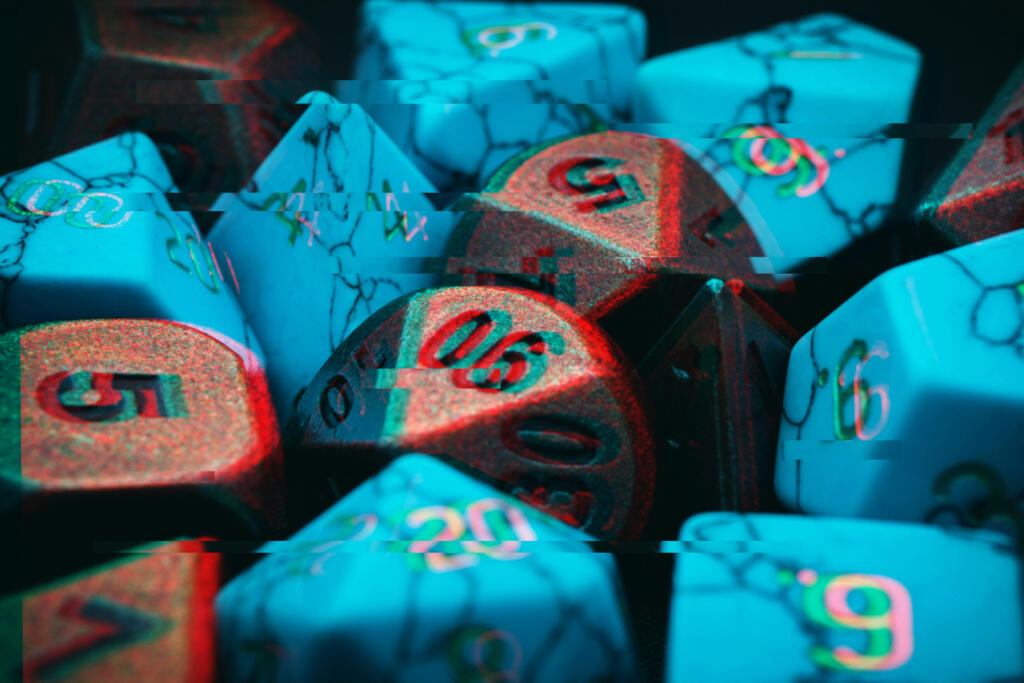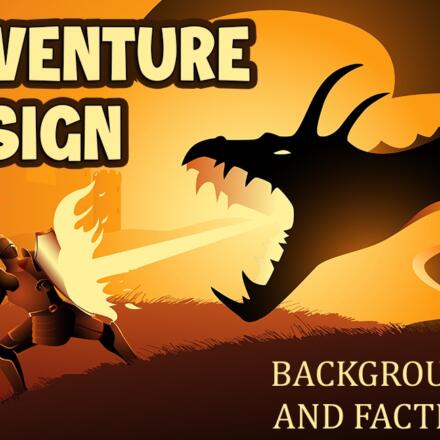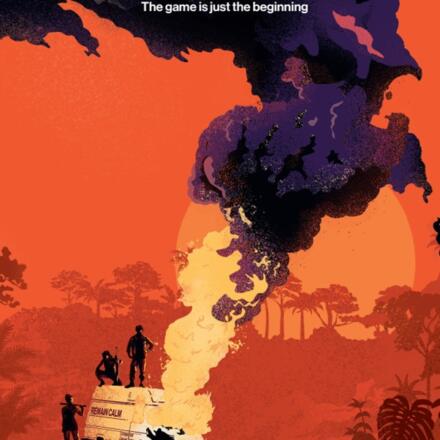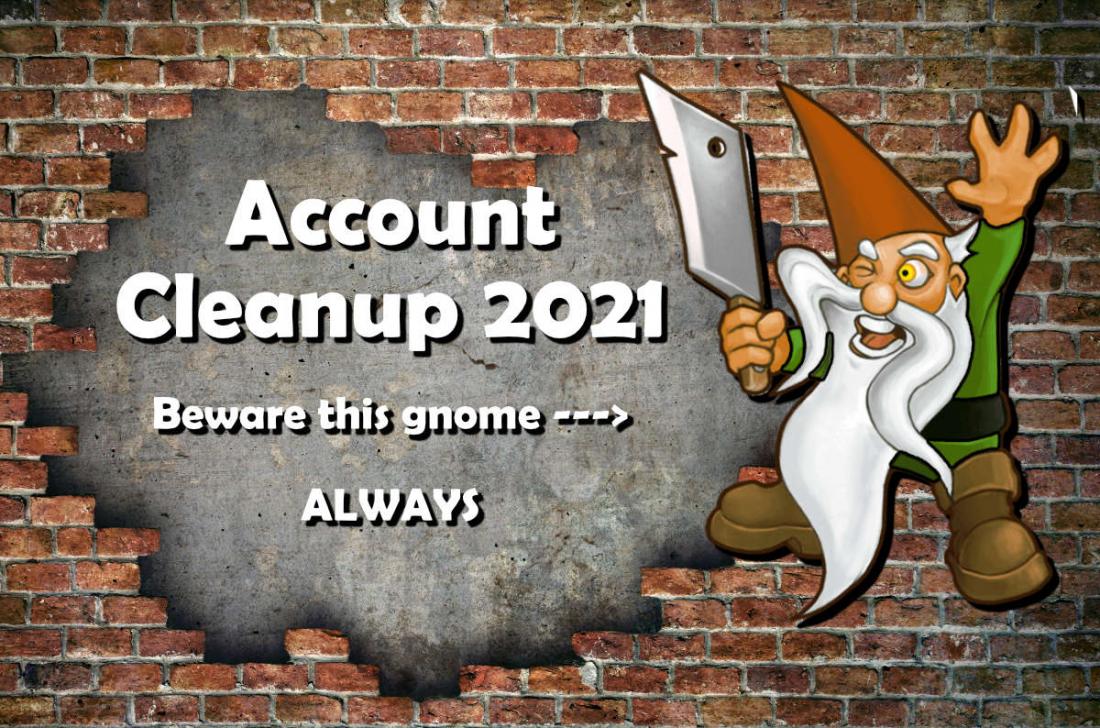
I’ve been mulling over the follow-up to my article On Dragons, Dungeons, and Dinner Parties for [ checks notes ] officially too long, but just this last week, I remembered a saying we used to have when I worked in theater arts: “The audience isn’t just coming for the show; they’re also coming for the experience.”
These words guided every decision we made, from the ticketing process to the music that played in the lobby to the snacks we served at concessions. It was all part of the experience, which brought me back to the idea of how to successfully host an online game experience.
How do we craft a good experience for our players when they’re just voices in our ears and videos on our screens?
There are plenty of articles and how-to videos out there about the technical skills you need to run a game online, but for this article, I want to talk about the charisma-based skill challenges we face when our campaigns are digital—the soft skills, the social stuff.
THE FIRST THREE THINGS YOU NEED
Whether you’re using Discord, Slack, or (gods forbid) Microsoft Teams, you will need some way to communicate with the people you’re playing with. That part’s obvious.
What isn’t so obvious is how you organize the chats. Plural.
I suggest a minimum of three different chat channels:
- An out of character channel where you can schedule sessions, socialize, and generally just, you know, chat.
- An in-character channel where players can send each other messages from their characters through sending spells, text messages if it’s a modern or future setting, or letters and missives if it’s a more fantasy-based setting.
- A rules-only channel where you can discuss the fiddly bits of the system and keep track of house rules.
Your Out of Character channel will likely see the most use, and I encourage you to keep that channel active between sessions. Share fun links or funny memes. Post gifs that remind you of what the characters did (the “Adam West Batman with a Bomb” gif gets a lot of use in our channels, as does the “Concern compilation” gif). Talk about your day. Use it like you’d use any social group chat.
TTRPGs are about having fun with your friends, so use the out-of-character channel to have fun with them.
Keeping the channel active between sessions means your players will get in the habit of checking it. This makes them more likely to see your game-relevant posts and keeps the game top-of-mind. It’s a great way to foster a healthy table and a flourishing campaign.
TABLE CHATTER
Healthy table chatter during a session is part of the game. When you’re sitting at an actual table, it’s easy enough for folks to talk through their moves during someone else’s turn, discuss the plot during someone else’s scene, or maybe even complain about their boss or something else non-game related if they need to vent.
The problem with table chatter in an online game is that, usually, everyone’s in the same voice channel at roughly the same volume, so it’s much easier to interrupt the session. Try relegating the cross-talk to the text channel.
My groups have taken to trading relevant GIFs back and forth as a kind of running peanut gallery when we don’t have the spotlight. It adds humor and levity to serious or tense scenes and keeps people engaged and – in a way – participating in what’s going on, even if their characters aren’t there.
THE RULES CHANNEL
When looking up a rule will take longer than the scene can sustain, good GM’s break out the tried and true “We’ll do it this way for now and clarify it for the future later.”
The rules channel? It’s the perfect place to do that “later” work. Not only will it give the more rules-minded people a place to discuss their interpretations, but it also acts as a running repository for the eventual rulings and a great place to drop house rules.
OPENING AND CLOSING RITUALS
An online chat space can seem…amorphous. It’s easy to get lost in a sea of notifications from other apps, pets begging for attention, or kids who don’t understand that Mommy needs her shiny math rock time right now. Rituals are one way we can help turn that amorphous, unformed space into a realm of wonder and imagination.
Whenever my players log into our Virtual Table Top, they see the same image: a kind of title screen with the name of the campaign and pictures of their characters. In technical terms, it’s just a gridless map in the VTT, but psychologically it has the same effect as a video game loading screen.
Likewise, I always open my games with the same phrase (borrowed from something Taliesin Jaffe once said on a podcast): “Grab a seat and a snack and attend carefully as we begin.”
Having a small ritual like this grounds players in the fictional reality we’re about to weave together.
I also end every session with Stars and Wishes. Not only is this a great way to get a glimpse into what your players want to see in future sessions, but it also gives them a chance to reminisce over the most recent session, and it’s a great way to signal that we’re done now.
(Rituals like this work great for in-person games, too, by the way.)
FREQUENT CHECK-INS
It goes without saying, but it’s kinda hard to read body language on a voice call. Even if your group uses video, it’s not easy to get a read on people if they’re not in the same room as you are. It’s not impossible, though. We all get used to the cadence and flow of conversations with our friends, and human brains are great at spotting both patterns and anomalies in those patterns.
You’ll notice changes in your friends’ usual tones, when the talkative one goes quiet, and when the amiable one gets curt. However, it’s almost impossible to know why precisely the vibe has changed. Maybe your talkative friend has gone quiet because she doesn’t like the way the scene is going, or maybe her cat pulled her mic cable out of her computer.
For this reason, it’s vitally important to check in with your players frequently, even if you think everything’s going great. Make a habit of checking in after breaks and at the end of sessions.
Your VTT should have plugins for other safety mechanics like the X card, and Demiplane has even created a new app that folks can use to anonymously alert their GM to aspects of the scenes that are making them uncomfortable.
Hell, I’ve even started doing what I like to call “Re-Session Zeros” after big milestone moments in the campaign. These out-of-character-only sessions give me a chance to make sure everyone’s still on board with the way the story’s been developing and give us all a chance to course-correct if we need to.
RAISE YOUR HAND
Speaking of making sure voices are heard: If you’ve got quiet players or players that don’t like to interrupt, creating a way for them to “raise their hand” when they want to interject is important. Personally, I keep a list of the PCs and put tick marks near their names as they take the spotlight. This helps me, as the GM, make sure everyone gets scenes and attention, but you could also institute a player-side mechanic depending on the chat program/VTT you’re using.
Roll20, for example, changes your character portrait based with a drop down menu. You could color code the portraits for folks who want to interject or take the spotlight. Zoom literally has a “raise hand” option.
TIME AND SPACE
Lastly, depending on your group, you’ll need patience in terms of timing and fictional spatial awareness. Just like during in-person games, one player may want a minute-by-minute accounting of their character’s actions while another might take a more, let’s say, narrative view on time, rushing through hours or maybe even days worth of tasks in a few descriptive sentences.
When you’re all together at a table, it’s easier to juggle the time stream, but even more, when you’re playing online, you need to make sure everyone else is aware of where and when their characters are. Consider taking a queue from video games and creating “overworld” maps to show characters’ general locations during downtime.
THE JOURNEY
This list isn’t exhaustive, obviously, and not every group will need every bit of advice given above, but even if you throw out all of the above, remember this one rule of thumb, and you won’t go wrong:
If you put as much care into all of the things surrounding your game as you do into preparing the actual game itself, then you’ll craft a wonderful experience.
After all, experience is more than the points that get handed out at the of the session. Experience is literally the friendships we make along the way.
















